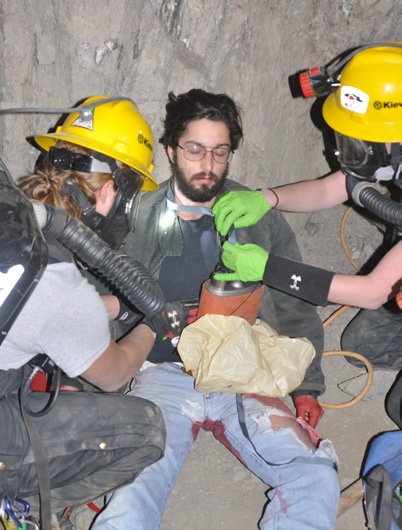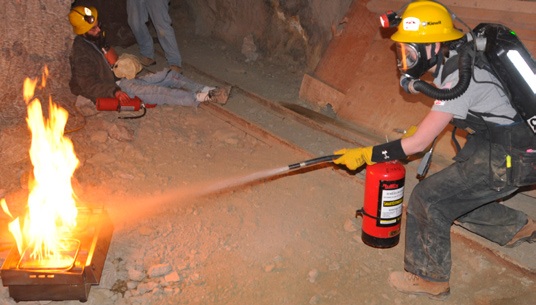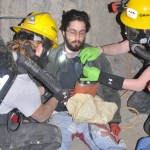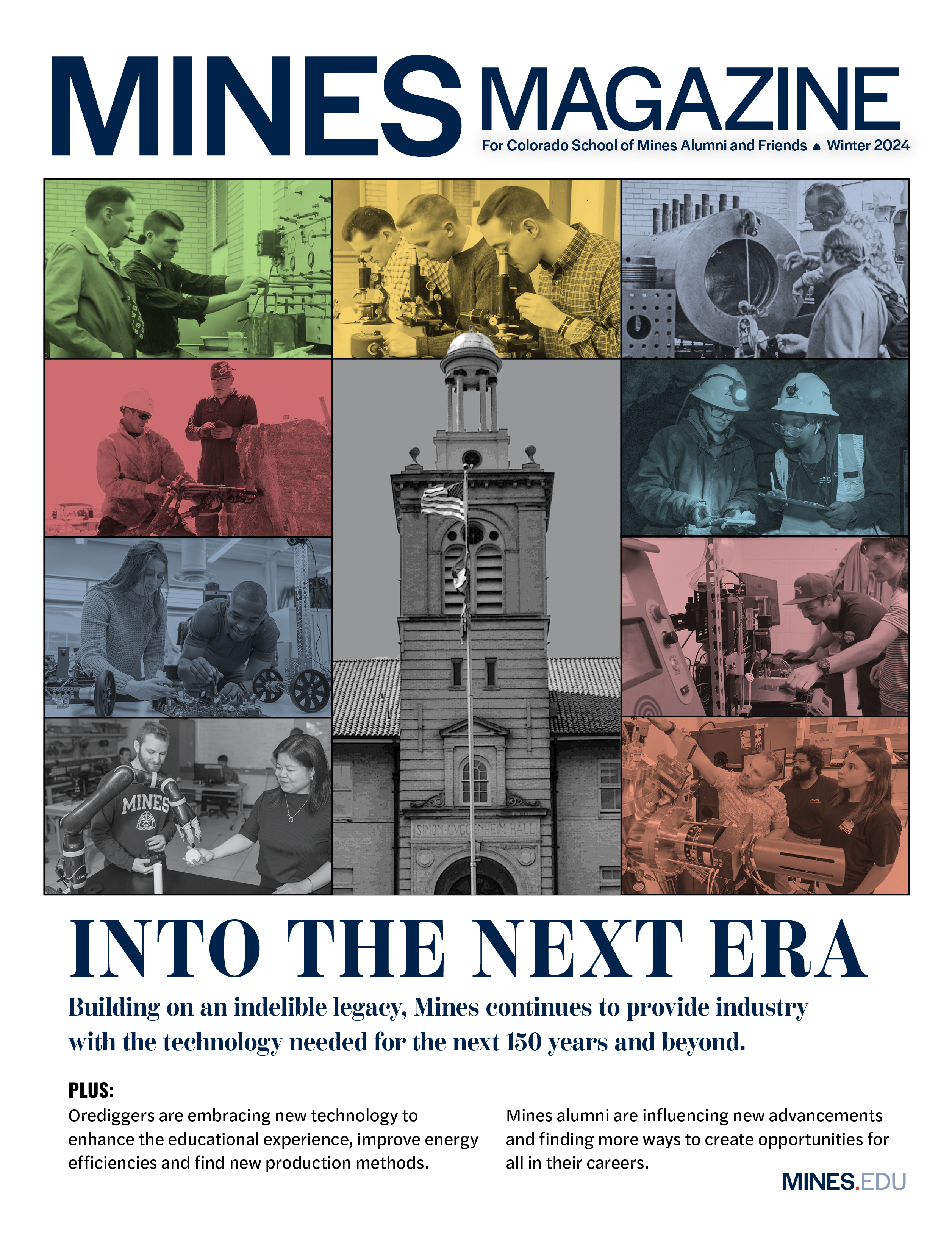
Hosted by Mines in February, the First Biennial Collegiate Mines Emergency Response Development Exercise (MERD) broke new ground: Professional miners have competed alongside college teams in MERD events for decades, but this was the first intercollegiate event of its kind ever held in the U.S.
Five teams from four universities gathered for two days at the Edgar Mine in Idaho Springs for the MERD competition, which was followed by a series of timed mine rescue challenges. Two interdisciplinary Mines teams, including the first all-female team to participate in a MERD event, competed against teams from Pennsylvania State, the University of British Columbia, and the University of Arizona. Mines’ student chapter of the Society of Mining Engineers planned the event to coincide with the national SME conference held in Denver every two years.
Mining engineering senior and SME chapter president Collin Smith was heavily involved in planning the inaugural intercollegiate MERD and Skills Challenge, along with State Mine Rescue Coordinator and Mine Safety Trainer Harry Lovely. Mines has a long history of partnership with the Colorado Division of Reclamation, Mining and Safety’s (DRMS) Mine Safety Training Program, which has been conducting training sessions at the Edgar Mine for more than 35 years.
During the competition, teams were evaluated as they rotated through various exercises, including underground mine rescue, backup rescue and incident command duties. Tasks included smoke exploration, a confined space maze chase, firefighting, rope rescue work and patient extraction. In addition to traditional mine safety and rescue training provided through the Colorado DRMS, MERDs were developed in accordance with Mine Safety and Health Administration (MSHA) standards to give mining students and professionals hands-on, experiential training in as realistic and unpredictable an emergency setting as possible.

The Mines women took 2nd and the men 3rd on the first day of the MERD, and Mines won the timed patient extraction challenge and the confined space maze race on day two. Harry Lovely presented the winning teams with plaques recognizing their achievements. ‘The MERD and Skills Challenge events for the student teams help instill a strong safety ethic and important skill sets for dealing with potential mine emergency situations they could face in the future,” he said. “These students will carry this important safety ethic along as future leaders of the mining industry.”
To cap off the two-day competition, the campus chapter of SME organized a talk by Layne Christensen Company driller Jeff Hart about his remarkable contributions to the rescue of the 33 miners trapped in Chile’s San Jose Mine for 69 days last fall. Hart was called in from a U.S. Army water well site in Afghanistan to act as chief driller for the team that made up ‘Plan B’ of the rescue operation. It was his team that finally reached the miners, providing them with a 26-inch wide, 2,300-foot-long escape shaft. A Denver-based contractor, Hart gave a sobering account of the challenges and complexities of the Chilean rescue operations, reinforcing the critical role mine rescue challenges and MERDs play in preparing students for the field.
Trisha Bentz Kendall



